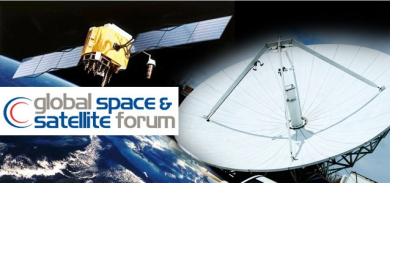The Emirates Institution for Advanced Science and Technology (EIAST) highlighted its contributions to space technology and the regional and global applications of its services at the Global Space & Satellite Forum (GSSF) held from May 9 to 11 at Abu Dhabi National Exhibition Centre (ADNEC).
Senior experts from EIAST shared the ground-breaking accomplishments of the organisation and the remarkable achievements on-ground through their presentations and round-table discussions at the region's premier forum for the space and satellite industry.
His Excellency Mr Ahmed Obaid Al Mansoori, Director General of EIAST, said, "After our success in launching DubaiSat-1 into space to be UAE's first earth observation satellite, our challenge was to make the benefit of DubaiSat-1 a common ground for the entire community of the UAE. We looked at ways to make the outcome of our satellite not only accessible to as many users as possible but also a common ground for decision making. This was our way to achieve our commitment to the concept of a 'knowledge based economy.' The tangible contributions made by EIAST were the focus of our participation at GSSF."
DubaiSat-1 has made lasting contributions not only for the region's overall social and economic development but also contributed to the benefit of humanity globally. Last year, images from DubaiSat-1 were provided to assist flood rehabilitation efforts in Pakistan, while images of the Japan earthquake and tsunami were shared with United Nations Platform for Space-based Information for Disaster Management and Emergency Response (UN-SPIDER) and Japan Aerospace Exploration Agency (JAXA) this year.
EIAST also contributes to the town planners in Spain and South Korea by providing images for supporting scientific research and development. DubaiSat-1 images are routinely employed for planning purposes by Abu Dhabi and Al Ain Municipalities, the Roads & Transport Authority (RTA), UAE Ministry of Environment, Dubai Silicon Oasis projects, and a number of universities in the UAE.
At GSSF, Adnan Al Rais, Head of the Ground Systems and Associate Researcher at EIAST, presented the details of DubaiSat-1's mission, the various types of services available through the satellite and also about value-added services that help evaluate the progress of construction projects, urban planning, vegetation index, and red tide phenomenon, in addition to the other global and regional applications of the images. Salem Al Marri, Head of Space Programme Department at EIAST, participated in a round table discussion on UAE Space Careers. He talked about the role of the organisation and how it builds the skills of Nationals in the UAE.
"EIAST's primary roles are to promote the culture of advanced scientific research and technology innovation in Dubai and the UAE, enhance and build an internationally competitive base for human skills development; position Dubai and the UAE as a science and technology development hub among advanced nations, and establish international collaborative links and joint projects with industry and research organizations," said Mr Al Mansoori. "We will continue to focus on our core goals while working with the global community for the welfare of humanity."
EIAST had launched DubaiSat-1 in July 2009, and since then has been transmitting satellite images that are of great value in several areas including observation and fog forecast; predicting sand storms; identifying the quality of water in the Gulf region - especially the effect of waste distillation in environment and marine life surrounding the oceans existing in the UAE.
The organisation is currently preparing for the launch of the UAE's second remote sensing satellite, DubaiSat-2, underscoring the country's commitment to strengthen its advanced space technologies to fulfil the needs of scientific and technological research, as well as to provide up-to-date spatial and earth monitoring data.

